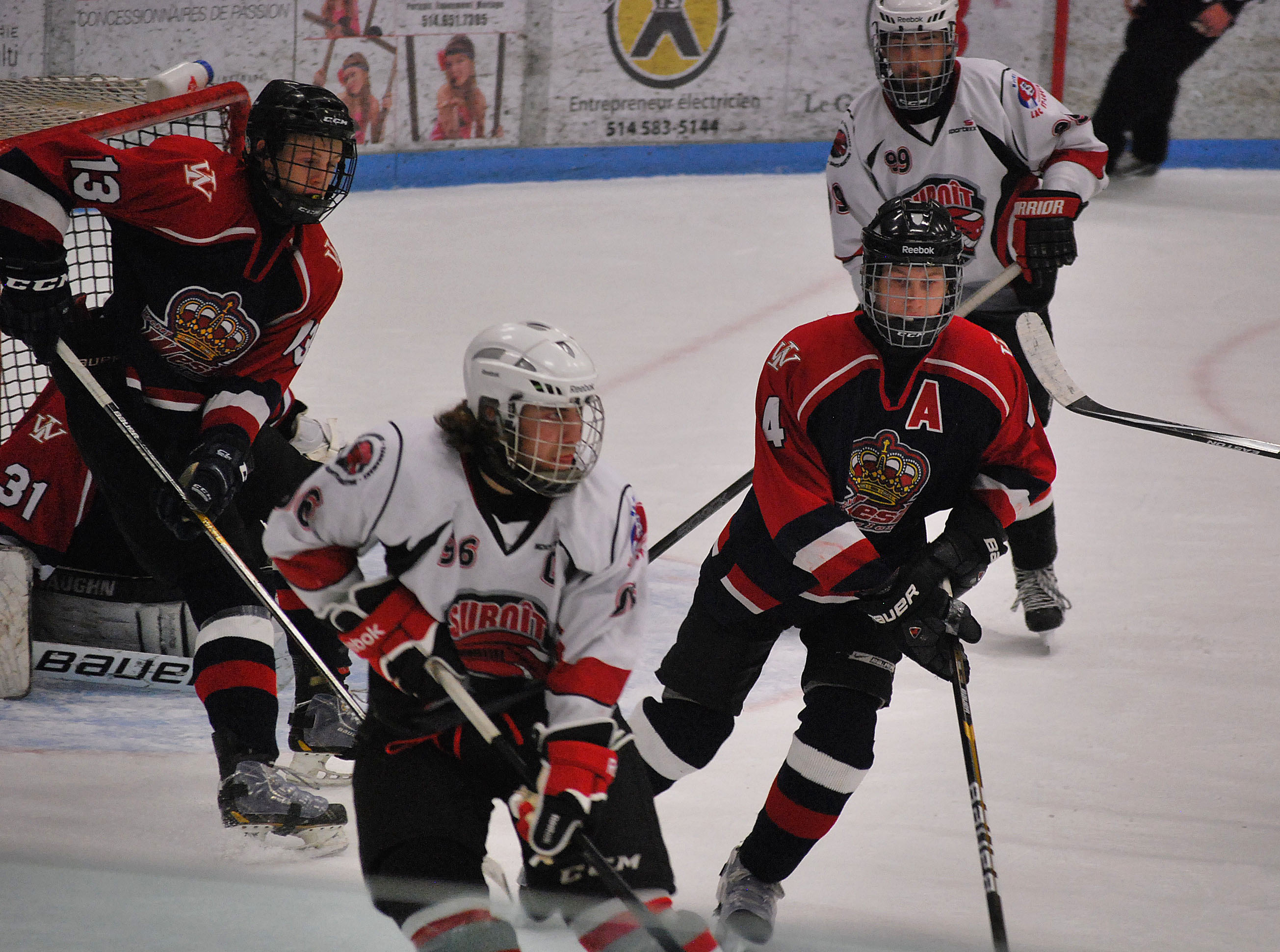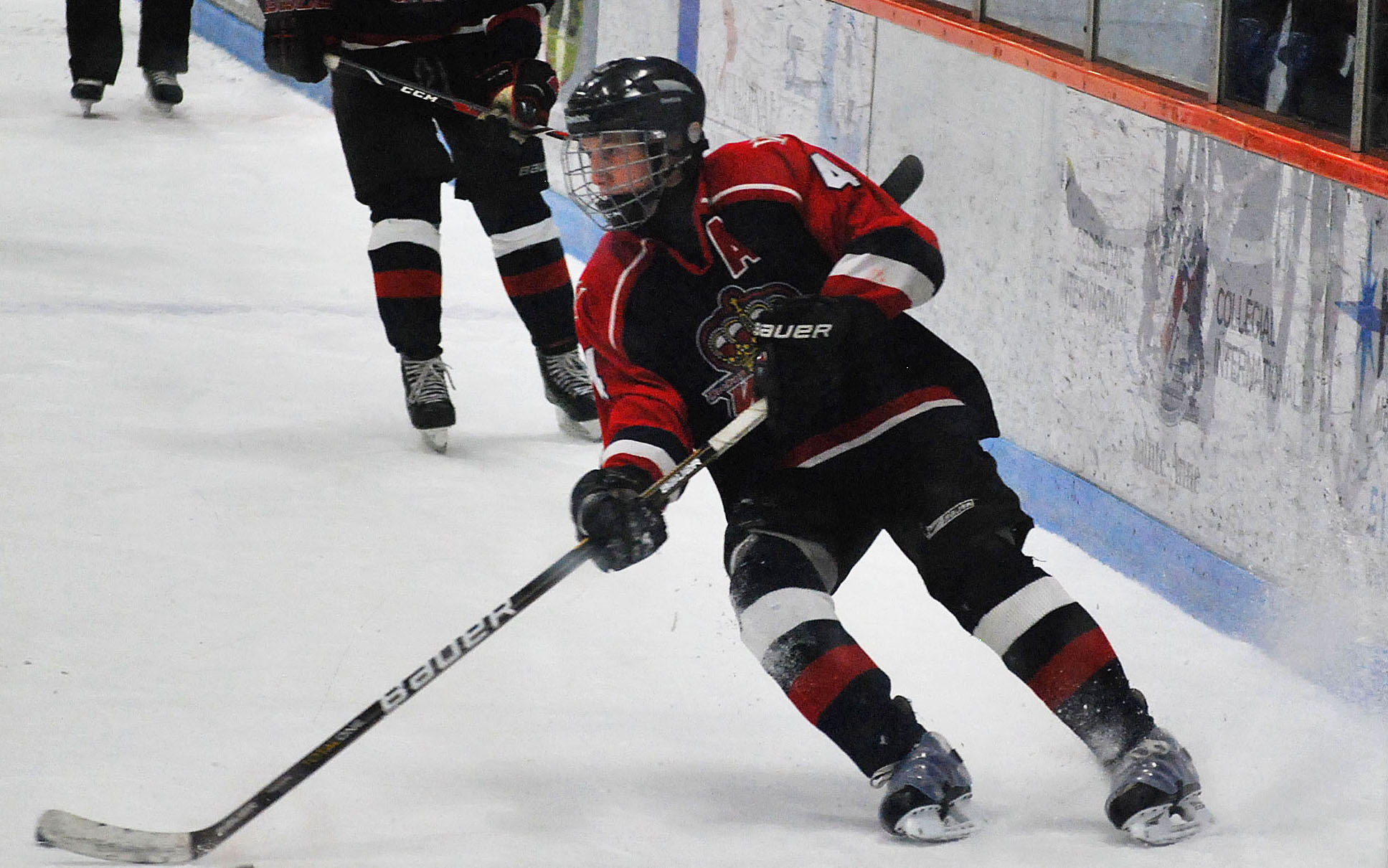Lifelong minor hockey players are worried about giving up the game they love
In every sport, there are rules. In most cases, these rules are set in place to ensure safety among players and maintain fairness for everyone involved. In hockey, for example, a close hit into the boards can earn you two minutes in the penalty box. If you drop the gloves and fight, it costs you five. If rules are broken, suspensions are served and lessons are learned. Rules are rules.

Hockey Canada has all those types of guidelines implemented in its leagues across the country. The association sets in place all of the regulations that affect both recreational and competitive leagues, and most of these rules have been set in stone for over 40 years. Some of these rules touch beyond what players do on the ice. Instead, they focus on specific player characteristics, which is having a significant effect on Junior level hockey players across Canada.
One of the longstanding rules in Canadian hockey is the age limit at the Junior level: no player over the age of 21 can continue playing in that league. Additionally, no team can have more than four 21-year-old players on their roster in one season, often resulting in several players losing their spot not necessarily because of lack of talent, but lack of space.
According to Martin Phillips, father of two hockey players and director of Junior hockey for the West Island Hockey Association, this regulation was set in place by Hockey Canada to allow more room for players coming up to the Junior level.
“There are tons of guys coming up from the Midget level every season needing a place to play for the next few years,” Phillips said. Regardless of whether the 21 year-old players get to play in their last eligible season or not, this rule has a profound effect on players across the country, and some closer to home.
Montrealer David Montgomery began playing hockey at the age of three and fell in love with the sport at first stride. “I honestly could skate better than I could walk at that point,” he said. “I always wanted to be on the ice.”
Over his 18-year career, Montgomery played hockey at various competitive levels, both regionally and provincially. After high school, he travelled to the United States to play hockey for Loomis Chaffee College in Connecticut. Wherever Montgomery went, his skates and stick followed. “Regardless of where I was in life, hockey was always a constant,” Montgomery said.
In 2013, Montgomery began playing Junior AA for the West Island Royals. He enjoyed the team atmosphere and had the opportunity to play with many former teammates he knew from past seasons. “The guys there are great,” he said. “Really talented and passionate about the game.” He spent two seasons with the team, but in March of 2015, at age 21, Montgomery packed up his skates and stick for the time being.

Upon finishing his last season of Junior, he and several other players in his position are facing a forced, early retirement from competitive hockey. “It honestly feels like someone clicked a stop button on my career,” Montgomery said.
Phillips acknowledges the effect the age limit has had on players over time. “Players deal with it differently, but I’ve never met a player who approved of it,” he said. Phillips knows that there are several players 21 years and older who are still physically able and willing to continue playing hockey but cannot do so because of the rule.
Missing the game isn’t the only negative effect that early retirement has on young players.
“Not being able to play anymore is going to take away from my ability to relieve stress and just take a break from everything,” Montgomery said. “It’s going to affect me in more ways than one.”
He also knows that his athletic ability may decrease, something many players experience when they don’t have the opportunity to be on the ice.
“I can still go to the gym and train, but no amount of training at the gym can keep me in the same shape that hockey has,” Montgomery said.
Retirement for these young players can be temporary, but this option is not necessarily ideal for all. Post-Junior, the next option available to players wishing to continue playing is to wait six years before lacing up the skates again and hitting the ice in Beer League, a recreational, non-contact hockey organization open to players 27 years of age and up. For Montgomery, Beer League is great for those who are older, but he would prefer if he didn’t have to wait so many years off-ice before being able to join.
“I don’t understand why we can’t have a league in between,” he said. “I know so many guys my age that would play, even if it was a level lower than what we’re used to. We just want to play.”
For some players, the age restriction of Junior hockey brings about a certain level of disappointment, but they are still trying to find ways in which they can stay involved in the sport besides playing. Steven Findlay, assistant captain of the Junior AA West Island Royals and Montgomery’s teammate, has been playing hockey for over 16 years and is now coming up on his last year of Junior level hockey.
“I know I still have a year to go so it hasn’t really hit me yet, but I can’t even imagine what it’s going to feel like when I know I’m hitting the ice for the last time,” he said.
For Findlay, hockey has always been his true passion. As the end of his competitive career approaches, he’s looking forward to taking on a new challenge in the hockey world.
“My dad, my brother and I have always wanted to take on our own team and coach a younger group of kids,” he said. “When I finish my last year playing and school settles down, that’s what I want to do.”
Findlay does feel, in some respects, that his hockey career is being cut short by the age limit, but he is trying to approach it with a positive attitude. “I guess that’s how the cookie crumbles,” he said with a smile.
Once he finishes playing, he will be looking for different activities to fill the void. “I think that besides coaching, I’m going to pick up other sports that I never had time for when I was playing hockey, like indoor soccer,” he said.
Over the coming years, several retired players like Montgomery are looking to see if any changes will be made to either the age limit of Junior level hockey, or if a league for players wishing to continue their careers will be created.
“We’re still young adults trying to figure out a lot about life,” he said. “We’ve related so much of our lives to hockey and now it [kind of] feels like a part of us is gone.”
According to Phillips, no association to his knowledge has made any motions towards a change.



